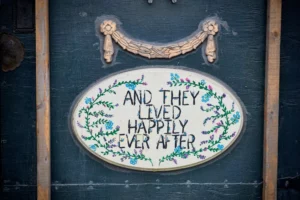A couple of weeks ago, I shared a story about how giving my young son a toy I knew he wanted ended up being a lesson in God’s character for me. And it’s been gratifying, humbling and really interesting to read through the comments many of you have made on that post with regard to subjects such as waiting on God, answered and unanswered prayer, as well as sex and virginity.
Something else interesting happened in my process of writing that post, and that’s what I want to talk about today. It has to do with what happens when married people try to talk to singles about the sometimes tough subjects I listed above.
When I got done writing the first draft of my post, I gave it to my wife to read over. Jennifer spent seven years working with college students on staff with InterVarsity and another six working with single young adults in our church after that. I knew I was dealing with some sensitive issues, and I wanted to get her take on it. I reminded her that many folks in the Boundless audience are single and to keep that in mind as she read the post.
Of course, as it was 11:00 at night, mostly I just wanted her to tell me how great my writing was. She didn’t. Instead, she zeroed in on a couple of paragraphs where I talked about God’s delight in giving good gifts to His children. “I don’t think some single people are really going to be able to hear what you’re trying to say here,” was her blunt assessment.
After a moment of self-centered frustration (I didn’t really want one of those “iron sharpening iron” marriage moments as the clock ticked toward midnight), I realized she was absolutely right and rewrote a big chunk of the blog post.
Jennifer’s concern boiled down to this: When married people write glowing paragraphs praising God’s faithfulness, it practically invites those who are still struggling with unanswered prayers and unmet needs to retort, “Easy for you to say, buddy. You’ve already got everything you asked for.” To put it another way, married people writing to singles about waiting and longing may potentially have a credibility gap.
I definitely felt that way in my many years of unanswered prayers when it came to my desire for marriage. As I’ve mentioned before, Jennifer and I got married when we were both 34. Before that, I had plenty of romantic flame-outs and two crushing long-term friendships in which I fell deeply in love with someone who didn’t fall in love back. (In the interest of full disclosure, I also broke off one relationship that was headed toward marriage, so I’ve been on both sides of that coin.)
I remember picking up a book about dating and beginning to read it as a struggling single in my late 20s. The first time I tried to read it, I literally threw it across the room in disgust, thinking, This guy who got married at 22 has absolutely no idea what I’m struggling with! The book I wanted to write at that point was more along the lines of I Kissed Unwanted Long-Term Singleness Hello.
Can you relate?
I believe that married folk (such as myself) can offer meaningful, honest and (hopefully) helpful counsel on the subject of singleness. But I also believe those of us trying to do so need to be very careful not to take our own experiences with God and dating and courtship and make them normative for everyone else. It may be something in our experience can help others in similar situations. On the other hand, God may be working very differently in your life than He did in mine.
That’s why I responded so badly to that book, I think. I was incredibly frustrated that the author was taking his own very particular convictions in this area and suggesting that all of us needed to approach singleness and dating exactly the way he did. I simply wasn’t convinced that his experience necessarily constituted God’s will for everyone else, too. It struck me, at the time, as not very helpful. And I couldn’t help but wonder whether he would have written the same thing had his singleness lasted oh, say, 10 or 15 more years.
So what do you think? Do married people have a credibility gap when it comes to talking about singleness? How might those who are married best engage with these issues with sensitivity and tact? What should we keep in mind when trying to discuss these issues in a helpful, not hurtful, way?
I look forward to the conversation.











